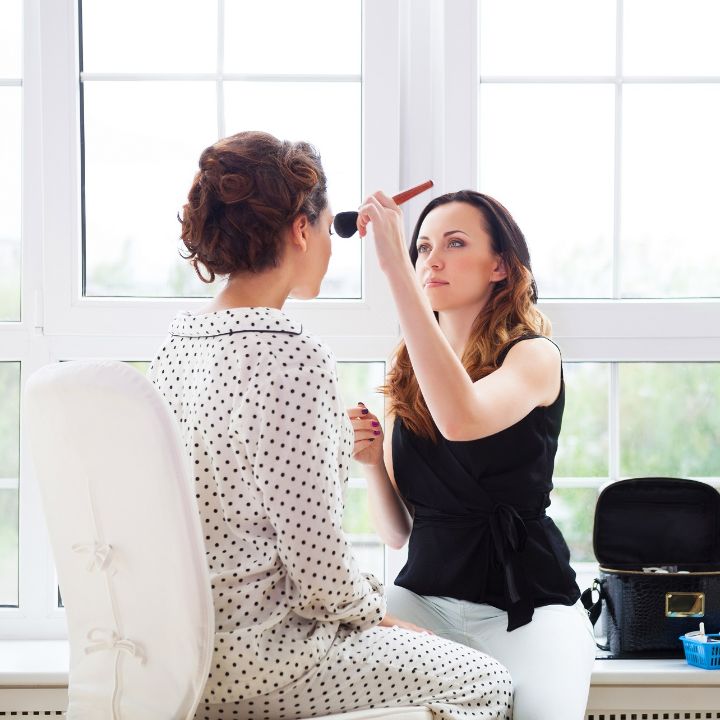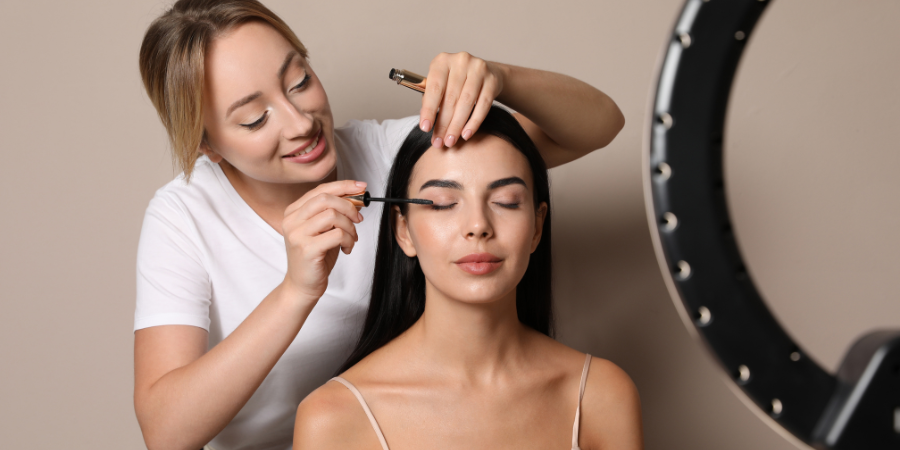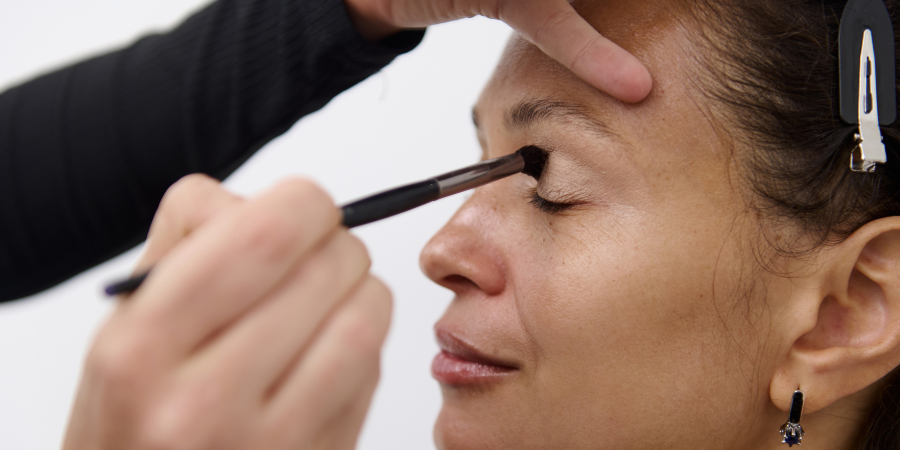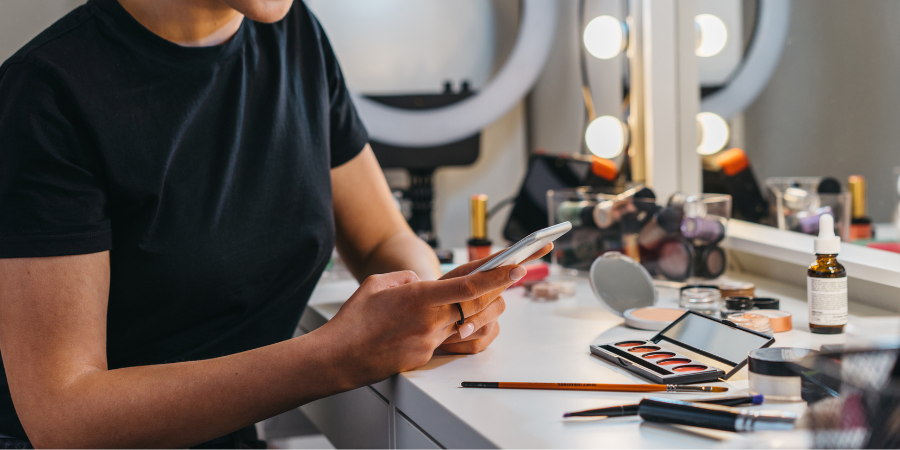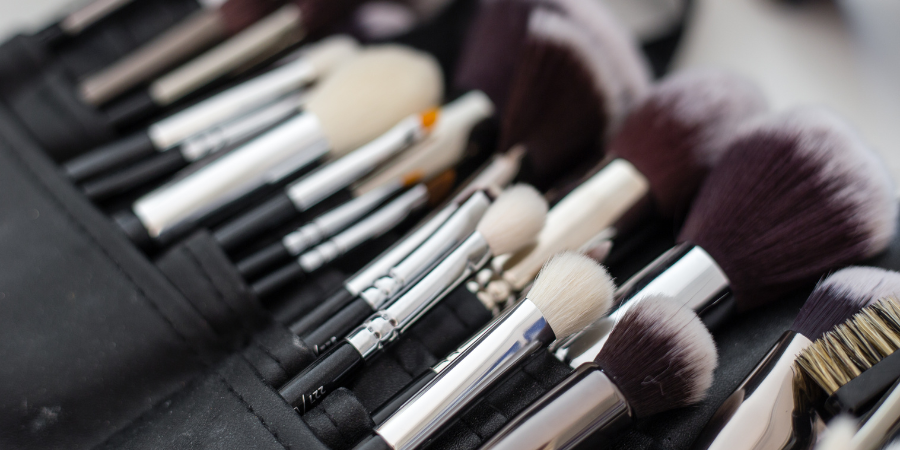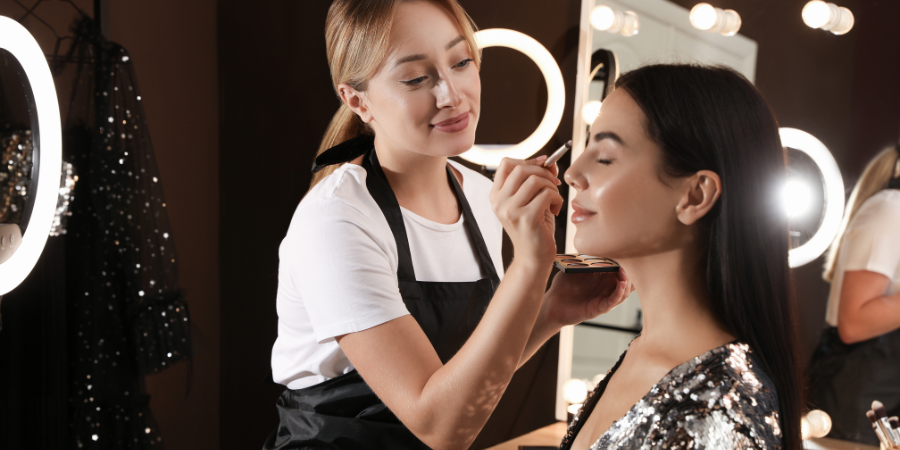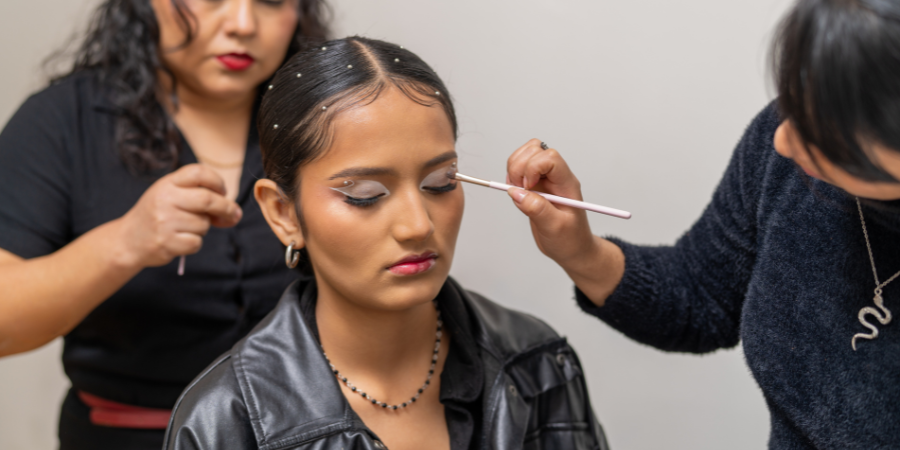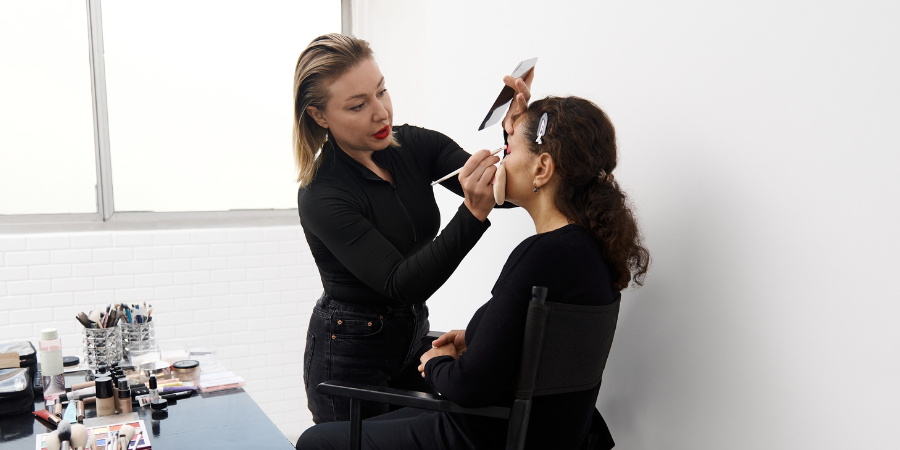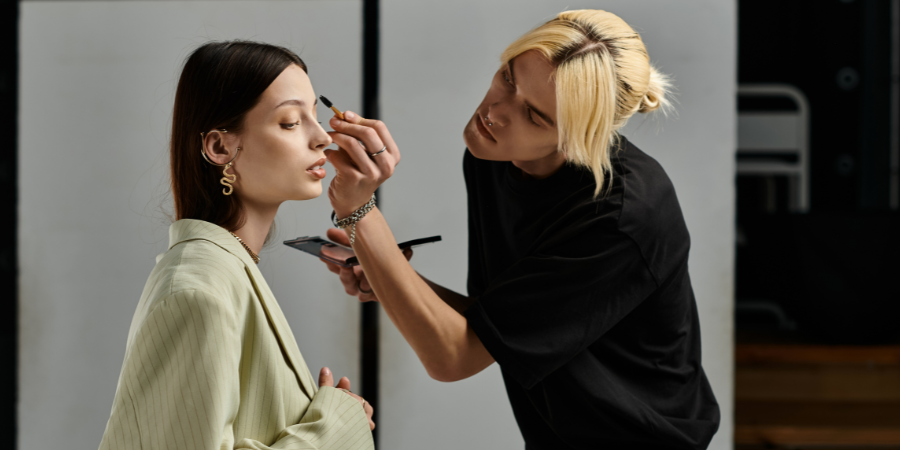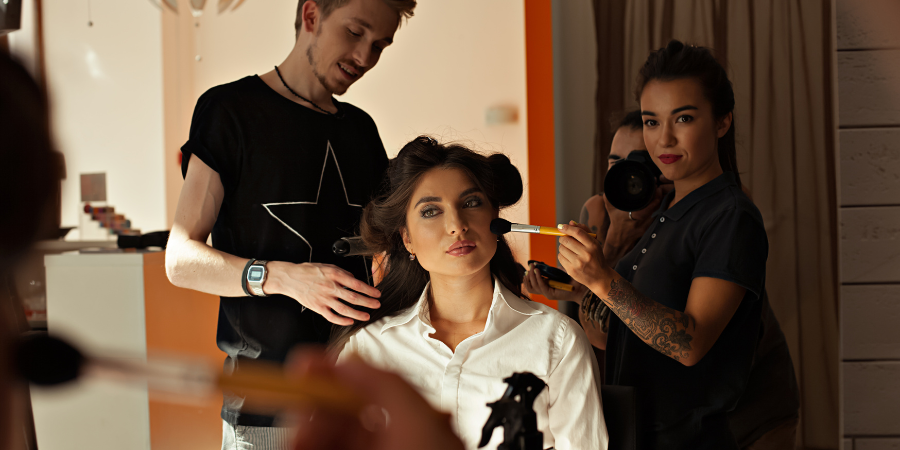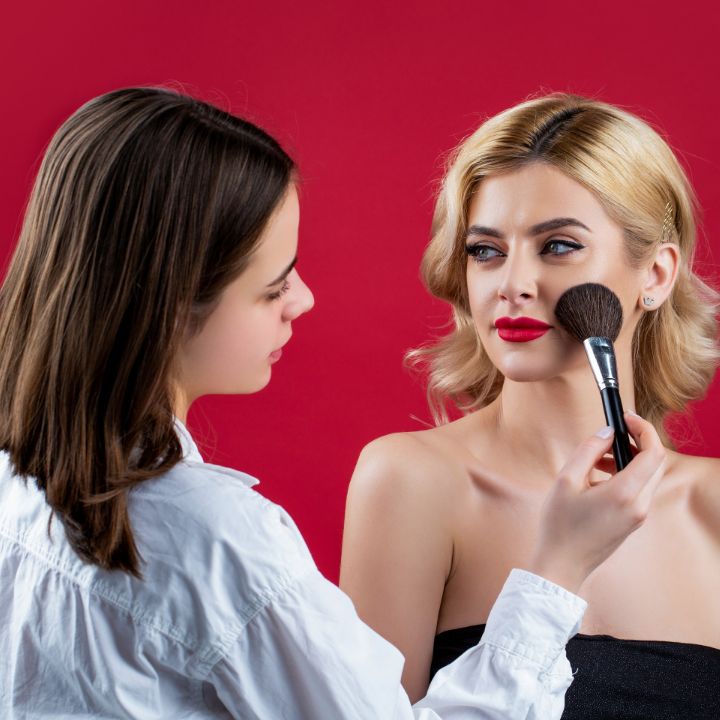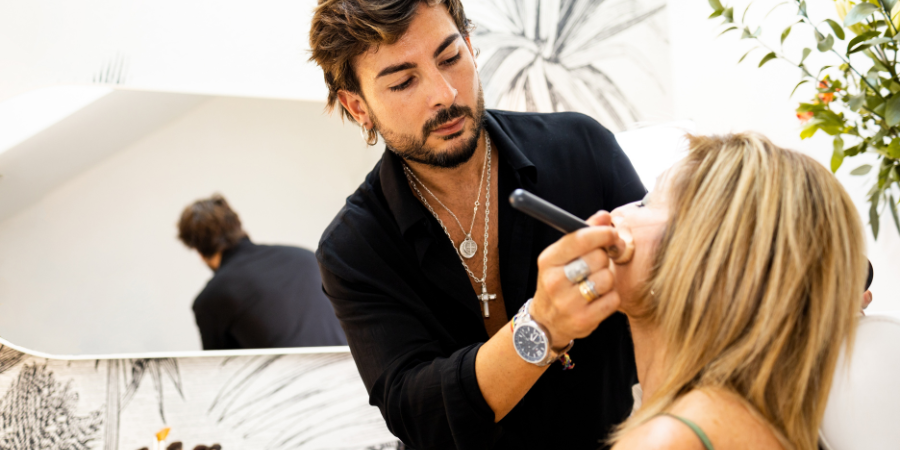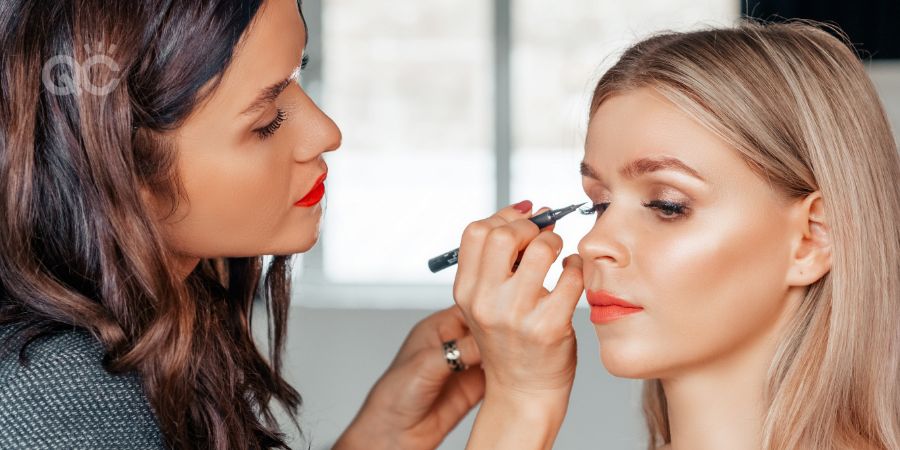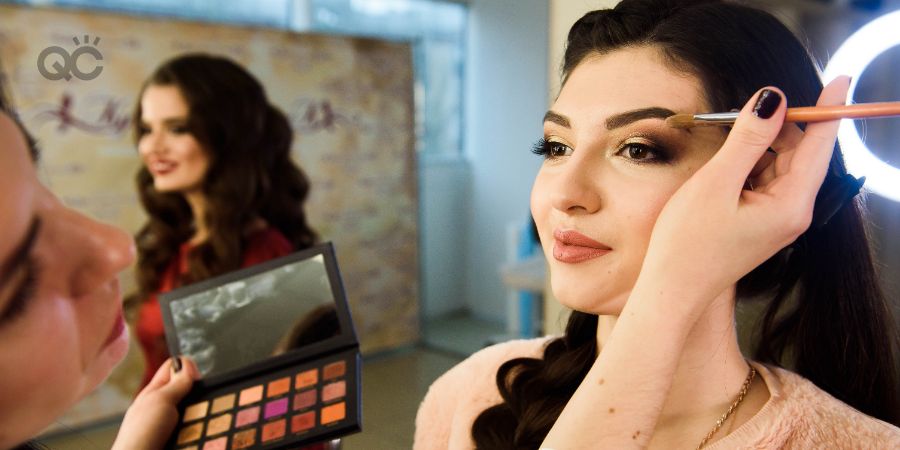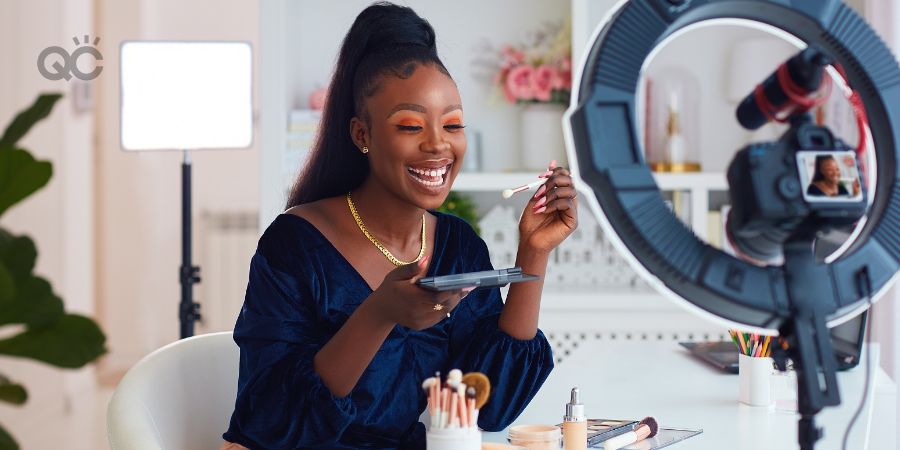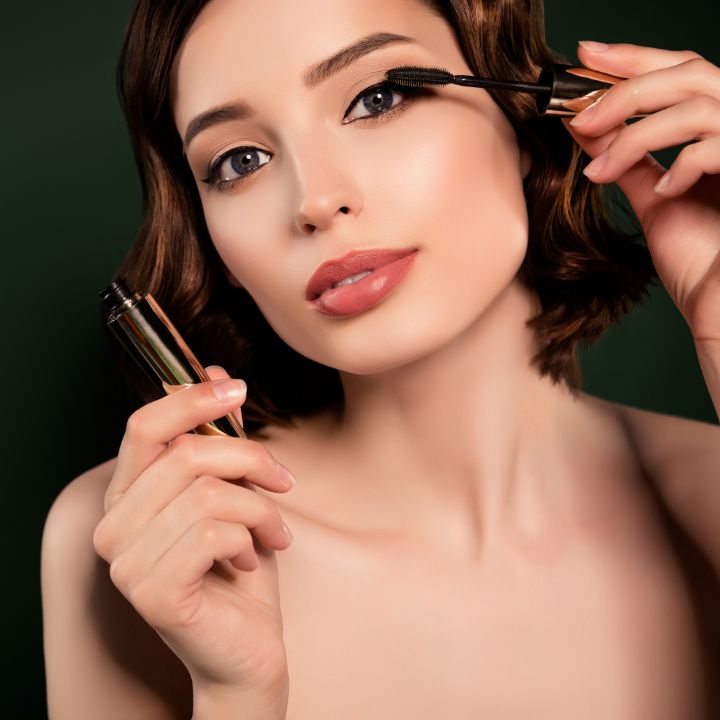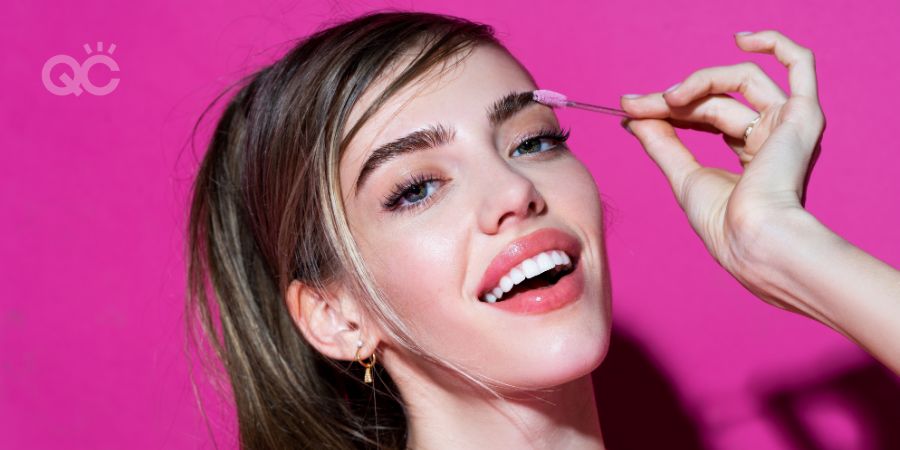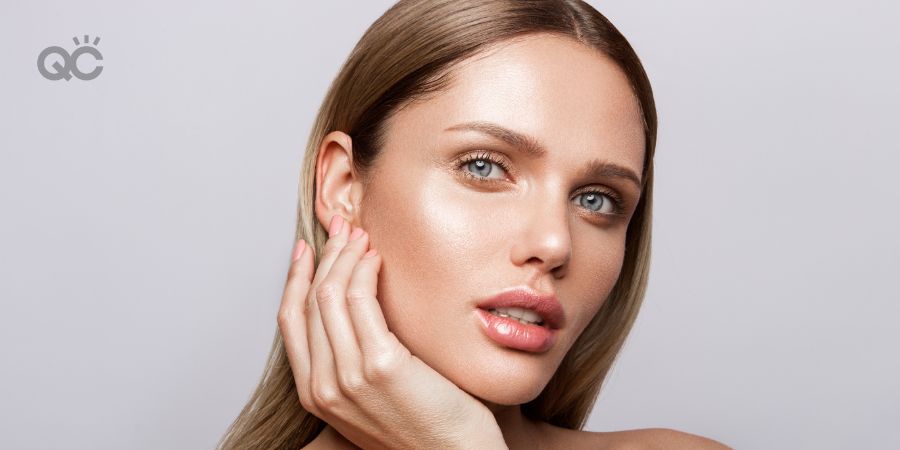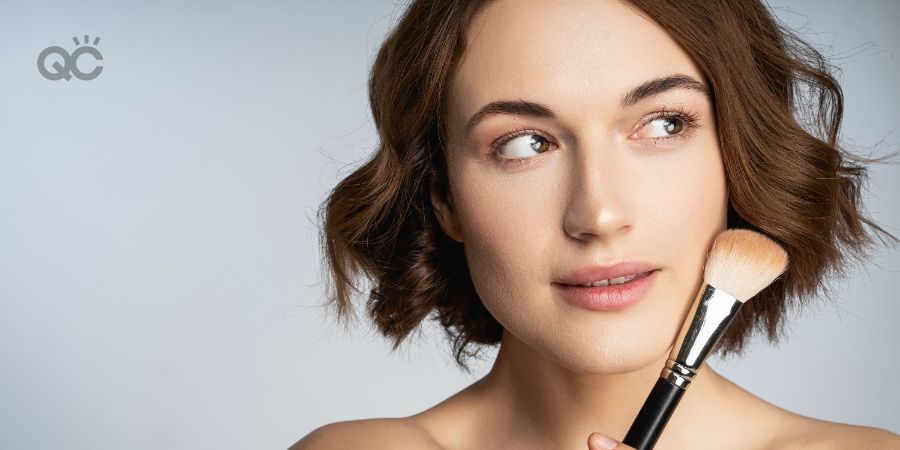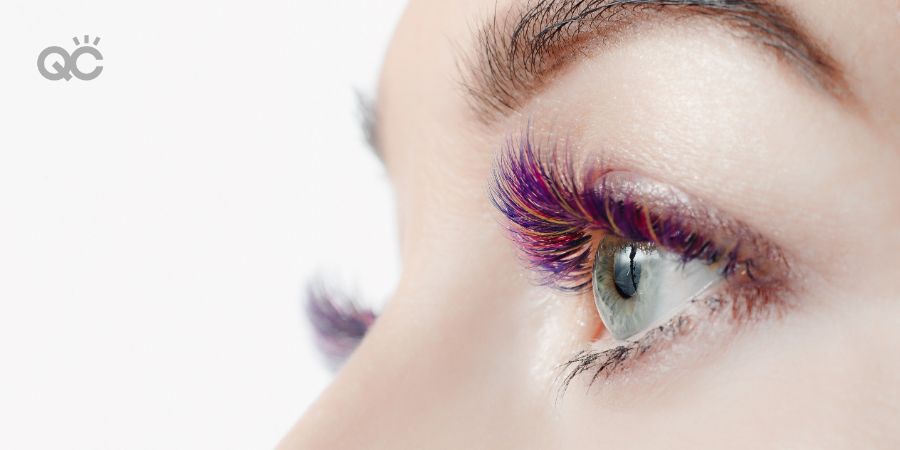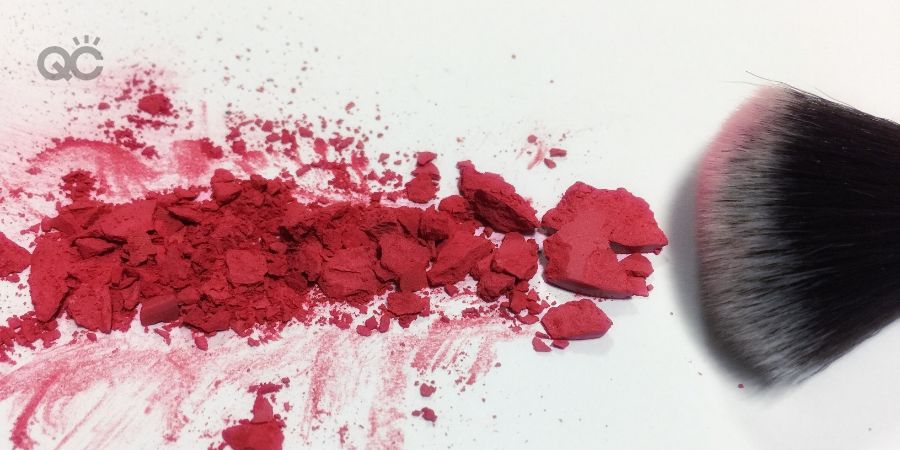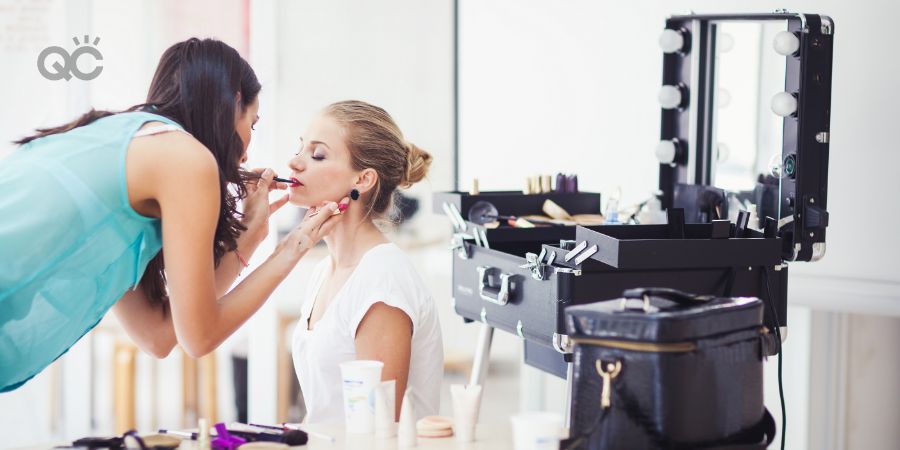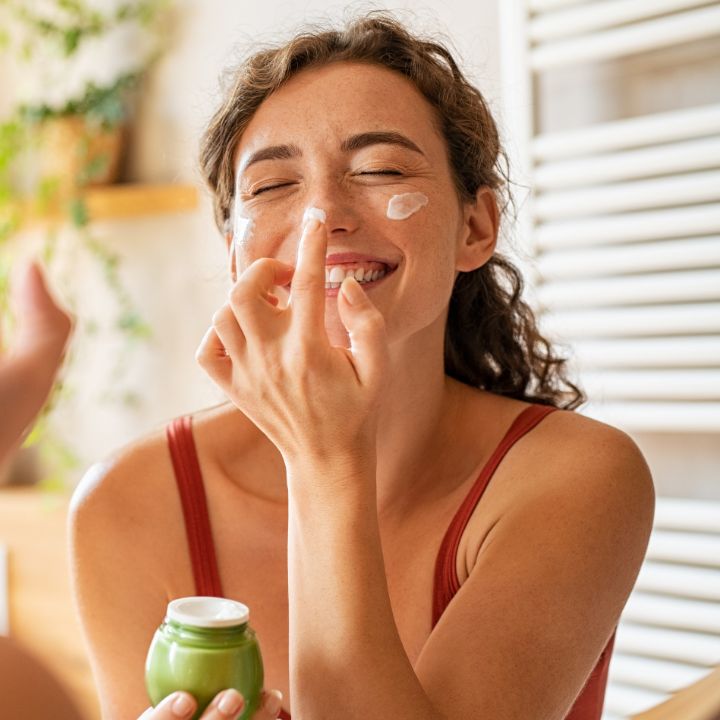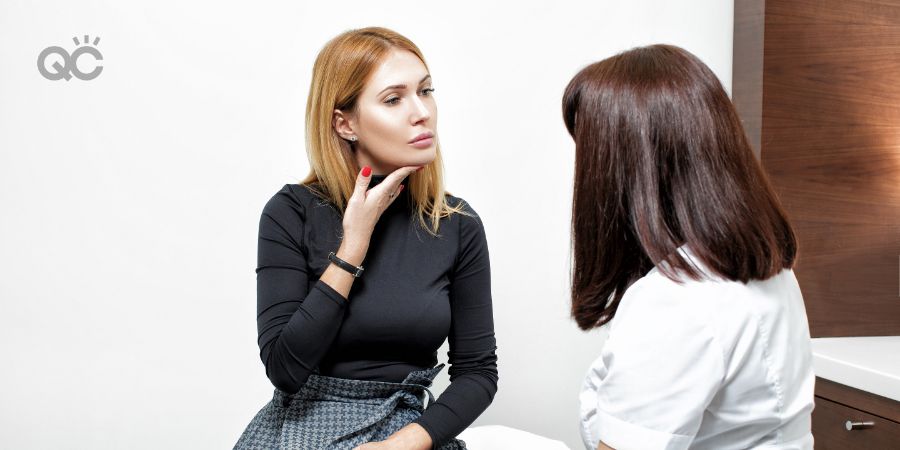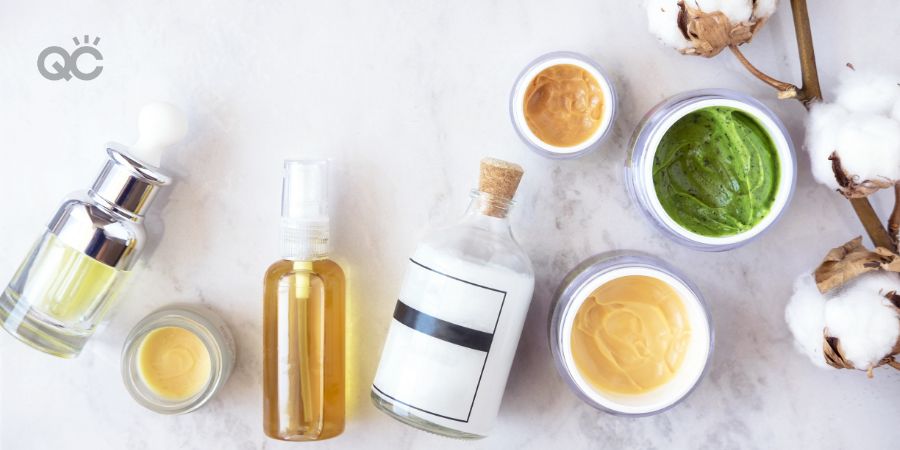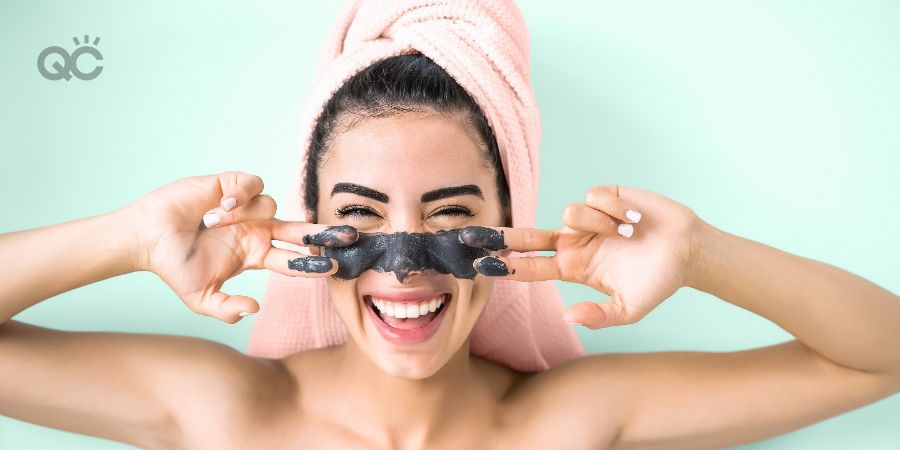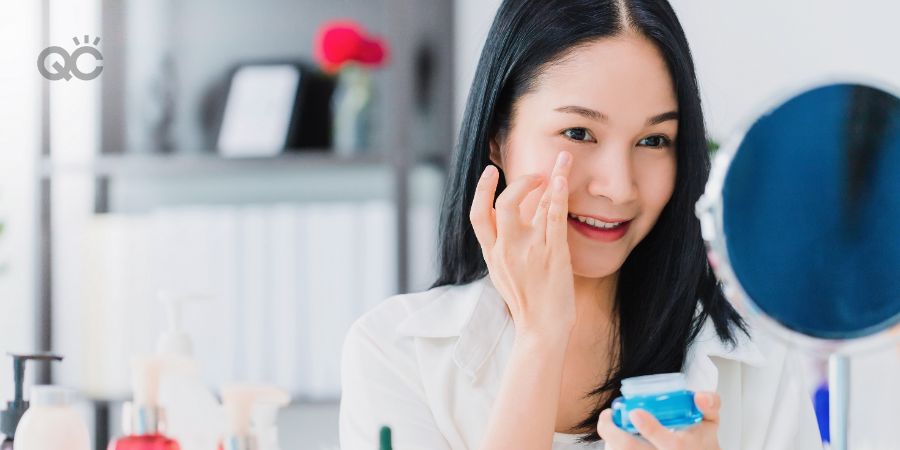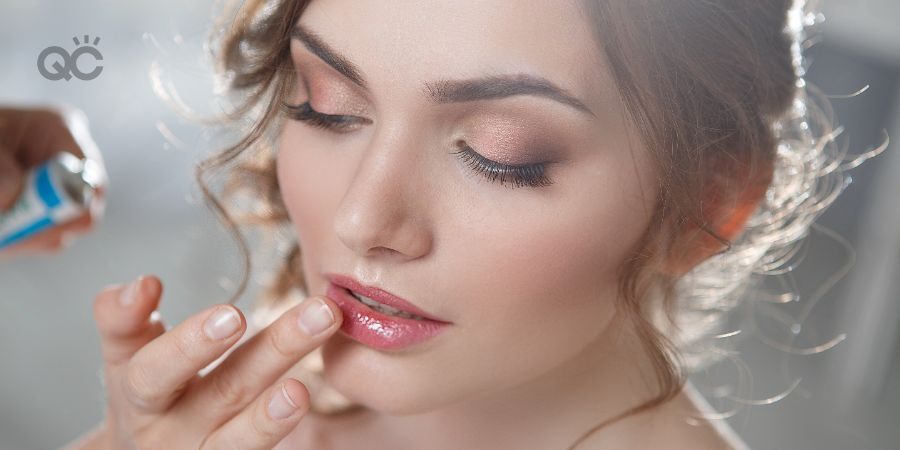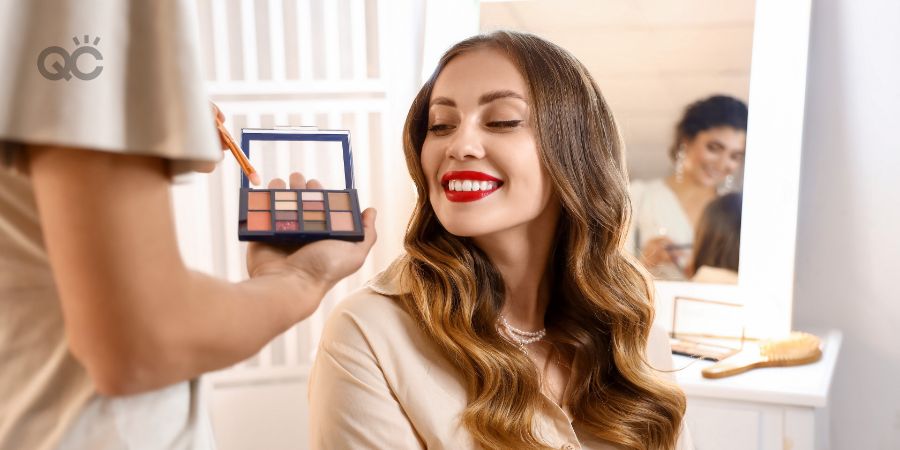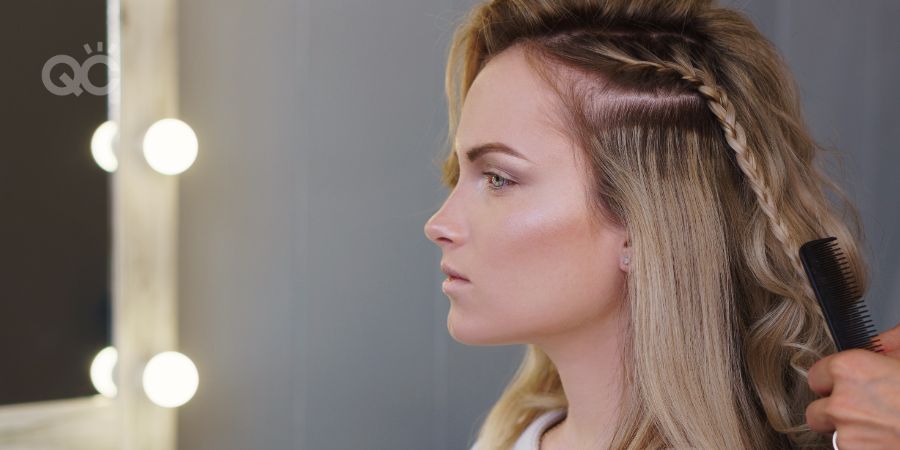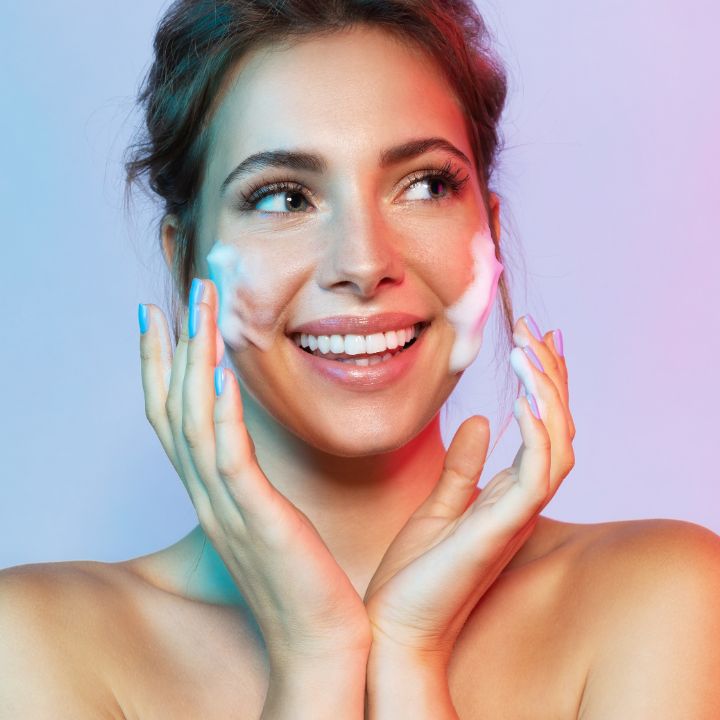
Let’s cut to the chase: today, we’re here to break down 25 tips to grow a skincare business and find success in the industry! And why is this an important topic of discussion, you may be wondering?
Because the skincare industry is BOOMING, that’s why! In fact, according to this study, it’s expected to reach a value of $177 billion by 2025. This makes it one of the most lucrative industries in the world.
So, if you’re thinking about starting your own skincare business, now is the time to do it!
Wait! Before we get started, did you know that we’ve written the ULTIMATE guide on becoming a certified Skincare Consultant – even with zero experience? We definitely recommend giving it a read!
What Is a Skincare Consultant?
First thing’s first…
A skincare consultant is a professional who helps individuals select and use the right products for their skin type, as well as provides advice on how to properly take care of their skin.
Some skincare consultants work in spas, salons, or skincare boutiques. Others operate their own business. Either way, with the rise of social media, more and more consultants are working remotely.
This, of course, is obviously GREAT news if you’re looking to start your own business! (And we assume you are – because why else would you be reading this article, right?)
Did you know that in as little as 2-6 months, you can become a certified International Skincare Consulting Professional (ISCP) by completing QC Makeup Academy‘s self-paced, online Skincare Course? It’s true – and it’s pretty amazing!

What Does a Skincare Consultant Do?
The day-to-day duties of a skincare consultant vary depending on where they work. For instance, those who work in spas may be responsible for providing facials, while those who work in salons may focus on giving makeup consultations.
Those who run their own skincare business, on the other hand, typically provide one-on-one consultations via video call or phone. During these consultations, they help their clients select the right products and create a skincare routine that fits their needs.
In addition to providing consultations, many skincare consultants also give talks or workshops on topics like skincare tips, makeup application techniques, and more. Furthermore, you may wish to offer both skincare and makeup services, all under one roof. This would be a great way to appeal to a wider clientele and increase your business earnings!
Interested in combining skincare AND makeup services? Enroll in QC’s Master Makeup Artistry Course and become a globally-certified Master International Makeup Professional (MIMP) in as little as 2 months!
How Profitable is The Skincare Industry?
As we mentioned earlier, the skincare industry is expected to be worth $177 billion by 2025. This means that there’s a lot of money to be made as a certified skincare consultant! According to Deals On Health, skincare is “the most profitable segment in the global cosmetic industry”, accounting for a whopping “42% of the worldwide cosmetic industry”.
Basically, if you’re looking to start your own business and earn a good income, this is definitely an industry worth considering!
How Big Is The Skincare Industry?
The skincare industry is absolutely HUGE! Like, we cannot stress enough how massive it is. Without any exaggeration, it’s one of the biggest industries in the world.
Here are some quick facts, to illustrate our point:
- Between 2015 and 2019, the skincare industry produced generated $1.7 billion in sales, just in Canada alone!
- The global skin care industry is worth approx. $148.3 billion!
- In 2020, at the height of the global pandemic, the skincare industry accounted for approx. 42% of the global beauty market!
- In 2021, men spent approx. $6.9 billion (in the United States alone) on skincare products!
- Back in 2019, skincare made up approx. 27% of the entire European cosmetics market!
- The market for skincare products in the Asia-Pacific (APAC) region is expected to hit as high as $105.6 billion by the year 2030!
As you can see, there’s definitely a lot of opportunity in this industry! This means that if you’re looking to start your own skincare business, now is most certainly the time to do it.
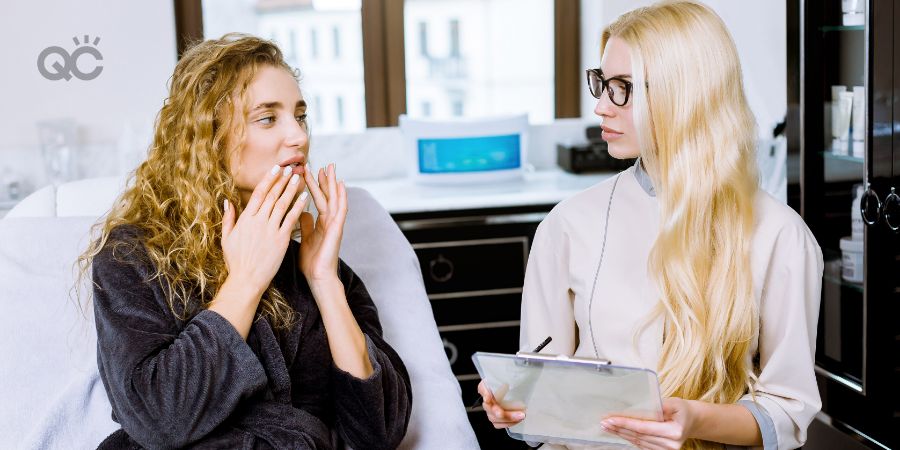
What Age Group Buys The Most Skincare Products?
If you’re looking to start a skincare business, it’s important to know who your target market is. According to Statistica, in 2021, the most skincare products in the United States were bought by Gen Z shoppers! Out of all the beauty products this age range (18-24 years old) purchased that year, 41% of these items were skin products.
This blog post by L’Officiel further corroborates the above findings. And in case you were wondering, Millennials, came at a close second in Statistica’s study. 40% of their beauty purchases in 2021 were also on skincare products.
So, if you’re wondering whether or not starting a skincare business is a good idea, the answer is a resounding YES! Not only is this industry extremely profitable – it also has a large and growing customer base.
Who Is The Target Market for Skincare?
With the above in mind, it’s important to remember that your personal target market will likely include people from many different age ranges. This is because, as we all know, skincare is important for people of ALL ages! Not to mention, where you live and its unique demographic will play a big factor into the type of customers you book.
Here’s another thing to keep in mind, to… Although much of your client base may be women, there’s a growing market for men’s skincare as well. So, don’t make them feel left out of your marketing efforts!
The more inclusive your skincare business is, in terms of the services you provide and the people you’re able to work with, the more successful it’ll be.
What Brand of Skincare Product is The Best?
As a skincare consultant, you’ll likely be asked this question a lot. And unfortunately, there’s no easy answer. The best skincare brand for one person might not be the best for another. This is because everyone’s skin type is different – meaning that what works for someone with dry skin might not work as well for someone with oily skin.
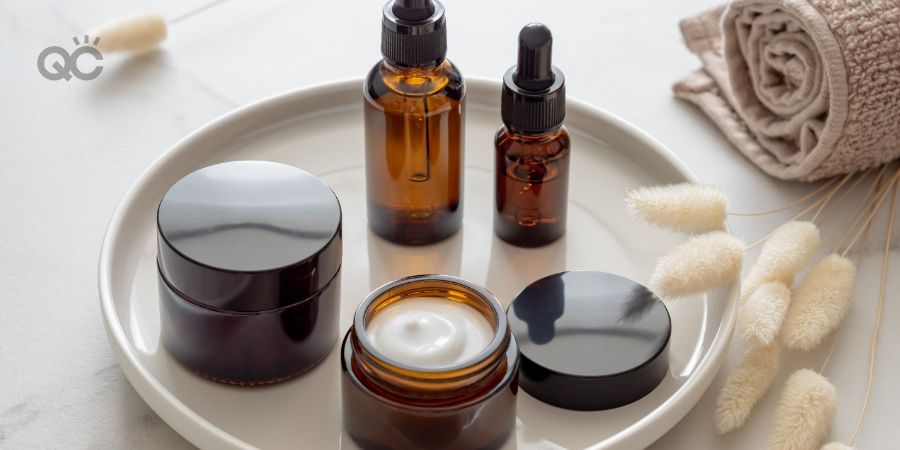
The good news is that there are plenty of great options out there to choose from! So, if you’re looking for some recommendations, we’ve got you covered. Here are 15 skincare brands that come highly recommended on the market today:
Ultimately, what will work best for each client will come down to trial and error. It’ll also be dependent on your client’s skin type, needs, and goals. But, as a skincare consultant, it’s important to be familiar with all of the best options out there.
This way, you can make tailored recommendations to each and every one of your happy customers!
25 Tips to Grow a Skincare Business
Now that we’ve covered the basics, let’s dive into some specific business tips that will help you succeed as a skincare consultant!
Tip #1: Get Certified Before You Build a Skincare Business
One of the best ways to set yourself apart from the competition is by becoming certified. Not only will a proper education give you more credibility with potential clients – it’ll also help you better understand skincare products and services. This, in turn, will allow you to provide your clients with even better results!
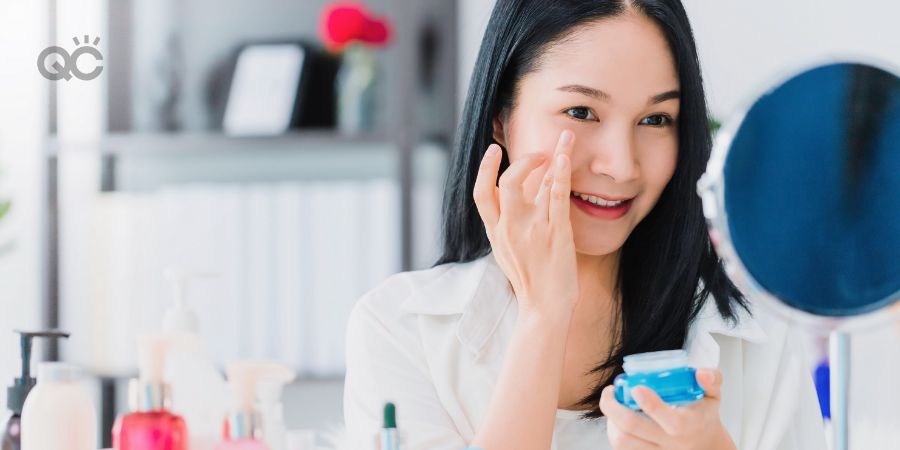
Tip #2: Figure Out What Type of Skincare Business You Want to Have
You can’t run a successful business if you don’t know what exactly your business is in the first place. So, this is the next place to start. Sit down, grab a pen, and jot down whatever ideas come to mind regarding the type of company you’d like to have in 1, 5, and even 10 years.
For instance, do you want to work in a salon? Be a mobile skincare consultant? Or would you rather open up your own brick-and-mortar store?
Do you want to solely offer skincare consulting services? Or would you like to pair that with complementary beauty services, such as professional makeup artistry or hair styling?
There are many different paths you can take when starting a skincare business. Ultimately, the route YOU choose will likely depend on your personal preferences, goals, and budget.
Tip #3: Pick The Right Name for Your Skincare Business
Your business name is important for two reasons: branding and marketing. A good name will help you build a strong brand that clients can easily remember. Plus, it’ll make marketing your skincare business a whole lot easier, too!
When brainstorming names, try to come up with something that’s catchy, unique, and relevant to the type of services you offer. You might also want to consider using keyword-rich phrases in your business name. This way, when people do an online search for skincare businesses in their area, yours is more likely to pop up!
Once you’ve got a list of potential names, do a quick Google search to see if any other businesses are using the same or similar ones. If so, scratch those off your list and move on to the next best option. If not, get your business name registered right away so no one else can take it!
Tip #4: Determine Your Brand
Your brand identity is how you want your business to be perceived by the public. In other words, it’s what makes you unique. And, as a skincare consultant, it’s important to have a strong brand identity that sets you apart from the competition!
Think about what type of image you want your business to portray. Do you want to be seen as luxurious and high-end? Relaxing and spa-like? Fun and vibrant? Natural and organic?
Once you’ve got a good understanding of the image you want to portray, start working on creating a cohesive brand identity for your skincare business. This includes everything from your logo design and color scheme to your company slogan and social media posts.
Tip #5: Purchase a Business License (and Make Sure to Renew It)
Before you can start operating your skincare business, you’ll need to purchase a business license.
A business license is a document that allows you to operate your business legally. It’s typically issued by the government, and it usually needs to be renewed on an annual basis.
In most cases, you can apply for a business license online – but it’s always a good idea to check with your local government office to see what the specific requirements are in your area.
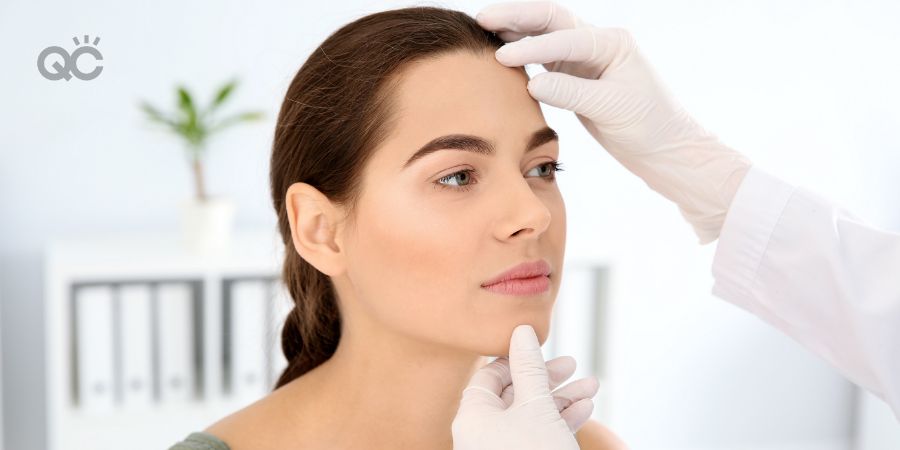
Tip #6: Get Insurance for Your Skincare Business
Another important step in setting up your skincare business is getting insurance.
As a skincare professional, you’ll be working with clients’ faces – which means there’s always a risk of something going wrong. Whether it’s a bad reaction to a product you used/recommended or a physical accident of any kind, it’s important to have insurance in case something does happen.
Firstly, having insurance will protect you financially. Secondly, it’ll also give your clients peace of mind knowing that they’re in good hands.
There are a few different types of insurance you might want to consider for your skincare business, such as general liability, product liability, and professional liability insurance.
Tip #7: Create a Business Plan
A business plan is a document that outlines your business goals and how you plan on achieving them. It’s an essential tool for any new business – especially one in the skincare industry!
When creating your business plan, be sure to include:
- An executive summary of your skincare business as a whole
- A description of your business
- A summary of who your target market is
- Your marketing and advertising plans
- Your financial projections
If you need help getting started, there are plenty of business plan templates and resources available online. You can easily find them via a quick Google search! That said, if you want someone to walk you through the process step by step, consider hiring a business coach or consultant.
Tip #8: Start Getting Experience as a Skincare Consultant
If you’re serious about starting a skincare business, then you need to start getting some experience under your belt – stat!
One of the best ways to do this is by working as a skincare consultant in a salon or spa. This will give you the opportunity to learn the ropes, test out products, and get comfortable with consulting clients. Plus, it’s a great way to build up your professional portfolio!
Another option is to offer your services for free (or at a discounted rate) to family and friends. This can be a great way to get some practice and perfect your consultation process. Just be sure that everyone involved knows it’s just for fun and not an actual paid gig!

Tip #9: Build Your Skincare Portfolio
As a skincare consultant, your portfolio is everything. It’s what you’ll use to showcase your skills and experience to potential clients. And, it’s what will help you land consulting gigs in the first place!
So, what exactly should you include in your portfolio?
- Before and after photos of clients you’ve worked with
- A list of the services you offer
- Testimonials from past clients
- Any relevant certifications and/or licenses you have
If you don’t have any before and after photos yet, don’t worry! You can always start by taking pictures of friends and family members before and after using the products/services you recommend. Just be sure to get their permission first – and make sure the photos you do take are of high quality!
Need help putting together a pristine, professional portfolio? QC Makeup Academy’s Portfolio Development Course will teach you everything you need to know in just a couple short months!
Tip #10: Make a Business Website
In today’s day and age, it’s absolutely essential to have a website for your business – no matter what type of business it is. And, as a skincare consultant, yours is no different!
Your website should be clean, organized, and easy to navigate. It should also include all the relevant information potential clients might be looking for:
- Your name
- Information about who you are
- Your contact information
- A list of the services you offer
- Service rates, should you wish to publicly disclose these details
- Before and after photos
- Client testimonials
- Your portfolio of any other services you offer (e.g., makeup artistry)
- Links to your social media pages
- An option for online booking
Building a website from scratch can seem daunting – especially if you’re not particularly tech-savvy. But luckily, there are plenty of user-friendly website builder tools out there that make the process relatively painless! This article, for instance, lists 10 FREE website builders at your disposal.
Tip #11: Learn About SEO – and Use It To Your Advantage
SEO, or Search Engine Optimization, is the process of optimizing your website and its content to rank higher in search engine results pages (like Google). As a skincare consultant with an online presence, it’s important that you learn about SEO and how to use it to your advantage!
There are 2 main types of SEO: on-page and off-page. On-page SEO refers to all the optimization strategies you can employ ON your website. Things like using keyword-rich titles and descriptions, formatting your text properly, and adding alt tags to images would all be excellent examples.
Off-page SEO, on the other hand, refers to all the optimization strategies you can employ OFF your website – such as link-building and social media engagement.
Both are important, but on-page SEO is generally more within your control. So, that’s a good place to start! And if you’re brand-new to SEO in general, we strongly encourage you to check out this Beginner’s Guide by Moz.

Tip #12: Get on Social Media
Social media is a powerful tool that can be used to promote just about anything – including your skincare business!
Not only does social media give you a platform to share your work with potential clients, but it also allows you to connect with other industry professionals, collaborate on projects, and stay up-to-date on the latest skincare news and trends.
There are tons of different social media platforms out there, but not all of them will be relevant for promoting your business. When choosing which platforms to be active on, make sure to consider:
- The age group of your target market
- The type of content you’ll be sharing
- How much time you’re willing to commit to maintaining your presence
Pro Tip: Some of the most popular social media platforms for skincare businesses include Instagram, TikTok, Facebook, Twitter, and Pinterest!
Tip #13: Try Out Different Marketing Strategies
There are endless marketing strategies you can use to promote your skincare business and get your name out there. The best part is, you don’t have to spend a fortune to see results!
Here are a few low-cost marketing ideas to get you started:
- Start a blog and write about topics related to skincare (e.g., skincare tips, product reviews, etc.)
- Reach out to local publications and offer to write articles or give interviews on skincare topics
- Create social media accounts for your business and post engaging content regularly
- Participate in online forums and discussions related to skincare
- Collaborate with other businesses in the beauty industry (e.g., hair salons, makeup artists, etc.)
- Start a podcast and discuss skincare topics with industry professionals
- Invest in paid advertisements (this doesn’t have to be costly if you tailor your ad(s) properly)
The sky’s the limit when it comes to marketing your skincare business. So, get creative and have fun with it!
Tip #14: Network, Network, Network
As with any other business, networking is essential for the success of your skincare company. By building relationships with other industry professionals, you’ll not only gain valuable insights and advice – you’ll also have the opportunity to collaborate on projects, promote each other’s work, and much more.
One great way to get started is by attending skincare trade shows and conventions. These events are a goldmine for networking opportunities! Not to mention, they’re also a great way to stay up-to-date on the latest skincare trends and products.
Another option is to join relevant online communities and forums related to skincare. This will give you access to a wealth of information and resources – as well as allow you to connect with other skincare enthusiasts from all over the world.
No matter how you choose to network, just make sure you’re putting yourself out there and taking advantage of every opportunity that comes your way.
Start networking while completing your certification training by joining QC’s free Virtual Classroom on Facebook! Even if you’re not a student, you can still be a temporary member for 2 whole weeks!

Tip #15: Know Your Target Audience
One of the most important aspects of running a successful skincare business is knowing who your target audience is. After all, how can you market your products and services effectively if you don’t know who you’re marketing to?
When determining your target audience, there are a few key factors to consider:
- Age
- Gender
- Location
- Occupation
- Interests/Hobbies
- Skincare Needs/Concerns
Once you have a good understanding of who your target audience is, you’ll be able to create targeted marketing campaigns that are much more likely to result in conversions. And that brings us to our next tip…
Tip #16: Create an Irresistible Offer
Now that you know who your target audience is, it’s time to create an offer they can’t refuse!
Your offer should be something that speaks directly to the needs and concerns of your target audience. For example, if you’re targeting busy moms who are concerned about wrinkles and fine lines, you might want to offer a free skincare consultation or mini-facial.
On the other hand, if you’re targeting young adults with acne-prone skin, you might want to offer a discount on your signature acne-fighting facial. No matter what your offer is, just make sure it’s something that will appeal to your target audience and encourage them to take action.
(The action, of course, being to book with you!)
Tip #17: Focus on Client Acquisition
Speaking of getting clients, that’s exactly what our next tip is all about: client acquisition!
In the early stages of your skincare business, it’s important to focus on acquiring new clients. Once you have a solid base of loyal clients, you can start thinking about ways to increase retention rates (i.e., getting them to book more often).
There are a number of different strategies you can use to acquire new clients, but some of the most effective include online advertising, word-of-mouth marketing, and content marketing.
Skincare Business Ideas: Online Advertising
Online advertising is a great way to reach your target audience where they’re already spending time – which is online! You can use platforms like Google Ads, Facebook Ads, Instagram Ads, and even TikTok Ads to create targeted campaigns that will reach your ideal customers.
Word-of-Mouth Marketing
Word-of-mouth marketing is another great way to grow your skincare business. After all, people are more likely to book with a business that comes highly recommended by someone they trust.
Content Marketing
Finally, content marketing is a fantastic way to attract new clients and build trust with your target audience. By creating helpful and informative blog posts, infographics, videos, etc., you can position yourself as an expert in the skincare industry – which will make people much more likely to do business with you.

Tip #18: But Don’t Forget About Client Retention, Too
Once you’ve acquired some loyal clients, it’s time to start focusing on retention.
Client retention is important for any business – but it’s especially important in the skincare industry. Since the skincare industry is so competitive, it’s vital to keep your existing clients happy and coming back for more.
There are a number of different strategies you can use to increase client retention rates, but some of the most effective include loyalty programs, referral programs, and VIP memberships.
Loyalty Programs
One way to encourage your clients to come back for more is to offer them a loyalty program. With a loyalty program, they can earn points every time they book with you – which they can then redeem for discounts on future services.
Referral Programs
Another great way to increase client retention is to offer a referral program. With a referral program, your clients can earn rewards (like discounts or free products) for referring their friends and family to your business.
VIP Memberships
Finally, you might also want to consider offering VIP memberships to your loyal clients. With a VIP membership, they’ll enjoy exclusive benefits like early access to new products and services, special discounts, and even free shipping on orders.
Tip #19: Consider Picking a Niche
When it comes to growing a successful skincare business, it’s important to stand out from the competition. And one of the best ways to do that is by picking a niche.
Picking a niche allows you to focus your marketing efforts and position yourself as an expert in a specific area. For example, if you’re targeting mature women, you could position yourself as a skincare expert for mature women. Similarly, you could market yourself as a skincare consultant that specializes in acne-prone skin, or even one that specializes in specific skin types (i.e. oily skin).
Not only will this help you attract more clients; it’ll also help you build trust and credibility with your target audience!
Tip #20: Pair Your Skincare Services with Makeup Artistry
Makeup artistry is another great way to grow your skincare business.
While you might not think of makeup artistry and skincare as being related, they actually go hand-in-hand! After all, what’s the point of having flawless skin if you don’t have the makeup to match? Not to mention, a person’s skin is quite literally the canvas on which they’ll apply any makeup look.
Pairing your skincare services with makeup artistry is a great way to attract new clients and increase revenue. Plus, it can be a lot of fun!
Need more convincing? Learn all about how QC’s Skincare Course helped professional MUA, Nadia Calabro, become an even better makeup artist!
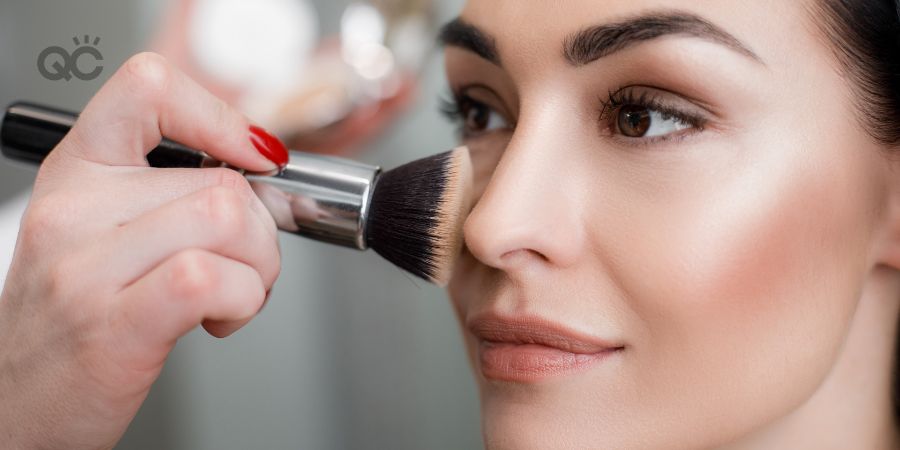
Tip #21: Price Your Skincare Services Properly
When it comes to pricing your skincare services, it’s important to strike a balance between what your clients are willing to pay and what you need to make a profit.
If you price your services too low, you’ll likely find yourself struggling to make ends meet. On the other hand, if you price them too high, you might have trouble attracting new clients.
The best way to determine how much to charge for your skincare services is by doing some market research. Look at what other businesses in your area are charging for similar services. From there, come up with a rate that’s competitive yet still allows you to make a profit.
Tip #22: Offer Skincare Packages
If you really want to grow your skincare business, then you need to start offering skincare packages. Skincare packages are pre-paid bundles of services that offer a discount to the client.
Not only do skincare packages encourage clients to book more services at once (which is great for your bottom line), but they also offer a sense of convenience and value that individual services just can’t match.
When it comes to designing your skincare packages, be sure to consider what your target market would be interested in. For example, if you’re targeting brides-to-be, you might want to offer a wedding day package that includes everything from makeup to hair to skincare.
Tip #23: Join Online Communities and Forums
Another great way to grow your skincare business is by joining online communities and forums related to your industry! One major perk is that it’ll help you network with other professionals. Moreover, you’ll also get a chance to share your expert knowledge with people who might be interested in your services.
For example, if you’re a member of a skincare-related Facebook group, you could answer questions about skincare routine or product recommendations. Similarly, if you’re a member of an online forum for beauty professionals, you could offer advice on starting and growing a skincare business.
Psst! This is yet another reason to join that QC Makeup Academy Virtual Classroom on Facebook that we were telling you about earlier!
Tip #24: Gather Client Testimonials (and Showcase Them)
If you want people to take your skincare business seriously, then you need to start gathering client testimonials. Client testimonials are powerful because they offer a first-hand account of what it’s like to work with you.
When potential clients see that others have had positive experiences with your business, they’ll be more likely to book services with you as well!
There are a few different ways that you can gather client testimonials. One is by simply asking your clients to write a review after their appointment. Another is by conducting surveys or sending out questionnaires.
Once you have some testimonials, be sure to showcase them on your website and/or social media platforms. You could even create a dedicated page on your website for them!

Tip #25: Stay Up-to-Date with the Latest Skincare Trends
Last but not least, one of the best ways to grow your skincare business is by staying up-to-date with the latest skincare trends. As we all know, the world of beauty is constantly changing and evolving. And if you want to stay ahead of the curve, you need to be on top of the latest trends.
Ways to Stay Up-To-Date
One great way to do this is by following skincare bloggers and influencers on social media. This way, you’ll always be in the know about what’s new and exciting in the world of skincare!
Another idea is to sign up for newsletters from beauty industry leaders. This way, you’ll receive updates directly to your inbox about all the latest skincare trends and news. Similarly, reading skincare publications is also a great way to stay informed.
And finally, in our humble opinion, the single best way to remain current as a skincare consultant is to continue your professional education. For example, you can start with QC’s Skincare Course – and then build upon your knowledge after that by taking additional programs. A makeup course, or even a hair styling course, will help take not only your skill-set to the next level… But your resume, too!
Final Thoughts
And there you have it – our top 25 tips to help you grow your skincare business!
We hope that this article has given you some valuable insights and information. But more importantly, we hope it’s inspired you to take your skincare career to the next level.
If you’re interested in learning even more about launching your very own company, you should also check out our comprehensive guide on starting a skincare business in 6 easy steps!
Got any questions for us? Feel free to leave them in the comments below. And, as always, thanks for reading! 💕






